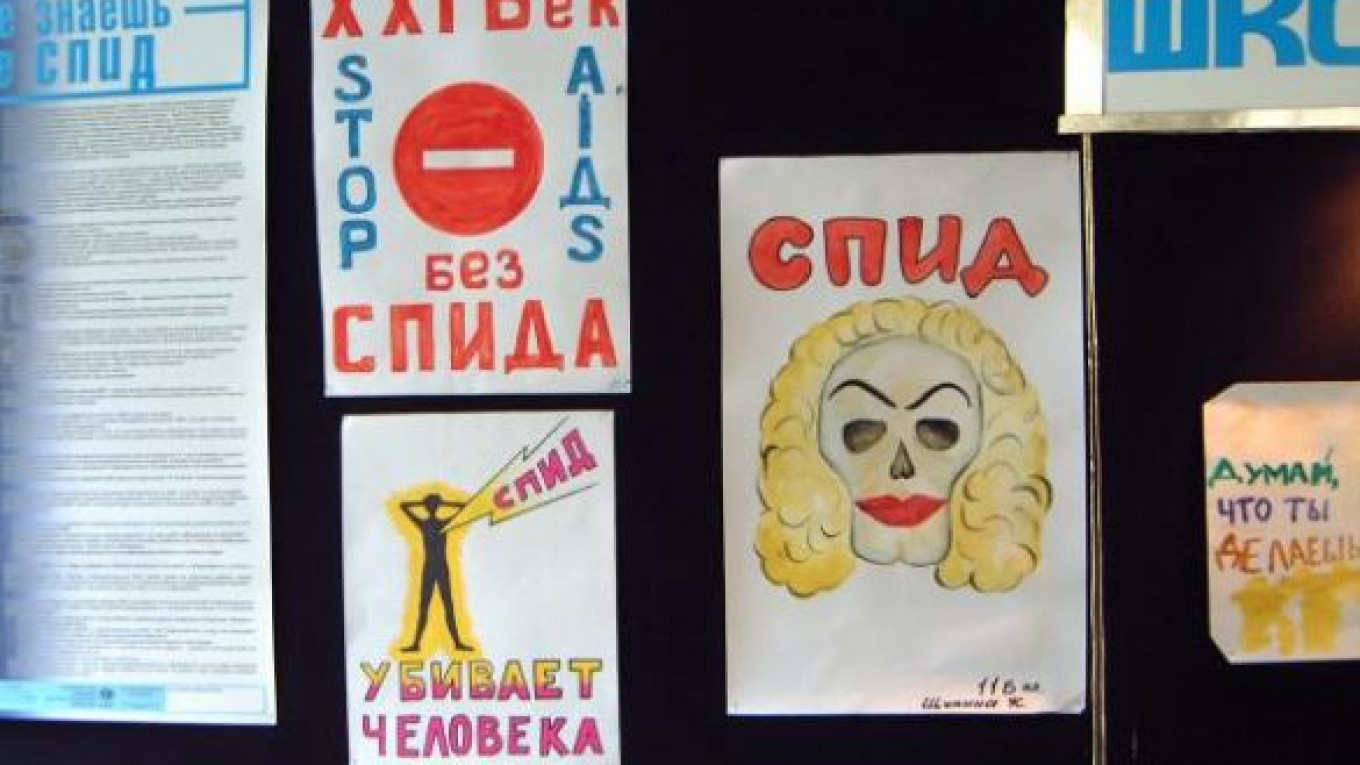Russia is assuming a leadership role in the global struggle to combat HIV/AIDS, even while cases of new infection are on the rise domestically, according to a report released Wednesday.
Researchers from UNAIDS, the United Nations HIV-prevention agency, said Russia is pledging increasing sums to back international HIV programs to monitor the spread of the virus and to find a vaccine.
In the yearly report, titled "Together We Will End AIDS," health experts offered cautious praise for Russia's growing contribution to global prevention efforts, saying that Russia is "stepping up" to share the latest expertise and financial assistance with its neighbors.
Russia donated $31 million to organizations implementing HIV programs last year, the report's authors said, mostly to groups in countries within the Commonwealth of Independent States, a regional grouping of former Soviet republics.
But despite increased investment in HIV prevention abroad, UNAIDS urged Russia to seek more contributions to the cause, citing the country's growing number of dollar millionaires as proof that local funding sources exist in abundance.
The global health body also pointed to Russia's rising HIV incidence to demonstrate that the country's own infection rate has not been brought under control. In 2010, the latest year for which UNAIDS data are available, there were more than 62,000 new cases of HIV in Russia, almost double the 2005 figure. According to data on the UNAIDS website, there are just under 1 million Russians infected with HIV.
Anya Sarang, president of the Andrei Rylkov Foundation for Health and Social Justice, slammed authorities' strategy in the domestic fight against HIV.
"It's common knowledge that the government is simply spending money for the sake of it. It's done not for the sake of patients but for the officials," she said.
"They make huge profits on federal tenders for purchasing antiretroviral drugs, that's where all the commitment stops," Sarang said.
UNAIDS Eastern Europe and Central Asia regional director Jean-Elie Malkin said that although authorities had made remarkable gains and were expanding regional support projects, the efficiency of HIV programs at home could still be improved.
Malkin suggested targeting hard-to-reach groups such as sex workers and drug users to eradicate remaining reservoirs of infection, which serve to propagate the HIV virus.
Lack of funding for HIV programs is not the issue, said Sergei Dugin, director of Humanitarian Action, a St. Petersburg NGO specializing in medical and social programs for high-risk groups. Dugin pointed instead to "poor coordination" as the reason for rising infection rates.
A Message from The Moscow Times:
Dear readers,
We are facing unprecedented challenges. Russia's Prosecutor General's Office has designated The Moscow Times as an "undesirable" organization, criminalizing our work and putting our staff at risk of prosecution. This follows our earlier unjust labeling as a "foreign agent."
These actions are direct attempts to silence independent journalism in Russia. The authorities claim our work "discredits the decisions of the Russian leadership." We see things differently: we strive to provide accurate, unbiased reporting on Russia.
We, the journalists of The Moscow Times, refuse to be silenced. But to continue our work, we need your help.
Your support, no matter how small, makes a world of difference. If you can, please support us monthly starting from just $2. It's quick to set up, and every contribution makes a significant impact.
By supporting The Moscow Times, you're defending open, independent journalism in the face of repression. Thank you for standing with us.
Remind me later.






